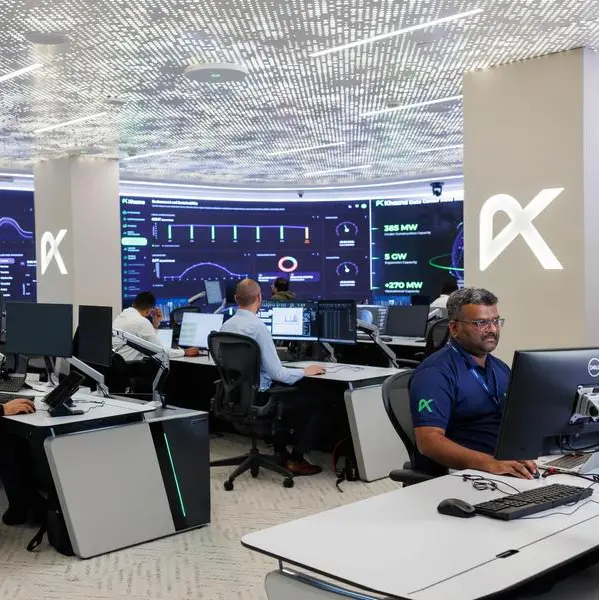PHOTO
GCC education sector ranks 2nd in terms of private equity transactions among all sectors in the Middle East, achieving the highest sector rank among education sectors globally
Governments actively encouraging private sector participation to help relieve budget strains across the board
Dubai, UAE: Set to host 65 million youth by 2030, the GCC is set to be very attractive for private investors in the coming years, with the education sector looking especially promising, according to a recent study by management consultancy Strategy& (formerly Booz & Company), part of the PwC network.
Education trends that will flourish over the next decade and contribute to increased opportunities for investors in the education sector:
- the region has a young and growing population, which is projected to approach 65 million people by 2030, a third of whom will be under the age of 25, which will likely be enrolled in schools or universities
- GCC governments are actively encouraging private sector participation to help relieve the budgetary strains created by low oil prices
- Disposable income levels are on the rise, and GCC consumers are willing to spend on high-quality private education.
Ramy Sfeir, partner with Strategy& who leads the family business, investments and real estate practice said, “Unsurprisingly, the GCC education sector has attracted significant investor interest as it has been developing at a fast pace. The sector ranks second in terms of private equity transactions among all sectors in the Middle East and first in sector rank among education sectors globally. The number of announced private equity and M&A transactions has increased three-fold over the past decade, from nine transactions in the two-year period between 2005 and 2007 to 24 transactions in the period from 2014-2016.”


Commenting on the education investment landscape in the GCC, Marc-Albert Hamalian, partner with Strategy& and a member of family business, investments and real estate practice said, “The question for investors is how to capitalize on these opportunities the GCC education sector offers. It will not be enough, to simply buy into the strong market for private education in the GCC and ride its growth as it is typically priced into valuations. Investors will need to identify the investment opportunities best suited to their risk versus return profiles and best determine how to create value. Only those who do this will unlock the full potential of their investments.”
Investors seeking exposure to the GCC education sector should consider pursuing different investment opportunities, based on their risk/return appetites:
- Growth-focused acquisitions: These plays are the easiest way to participate in organic growth of the sector. Investors should seek established companies in growing market segments (such as mid-end K-12 schools offering international curricula), exhibit sustainable competitive advantages, and already have established reputations, as well as room for capacity growth. The K–12 and higher education segments in the UAE and Saudi Arabia offer the most attractive growth acquisition opportunities in the region. A few recent examples include:
Dubai: GFH Capital acquiring an American curriculum school for US$34 million and a British curriculum school for $54 million in Dubai.
Dubai: The investment stake in Dubai-based, K–12 school operator GEMS Education, purchased by Blackstone and a consortium of other investors that same year, is another example.
Saudi Arabia: In Saudi Arabia, in 2016, Alkhabeer Capital acquired a controlling stake in the privately held Adwa’a Al Riyadh National School.
- Greenfield investments: Investors with a greater risk appetite will find the GCC education sector a good start-up incubator. There are opportunities for greenfield ventures in education delivery niches, such as pre–K (due to the growing numbers of women entering the workforce), special education, and vocational training; in education services, such as online tutoring and student assessment services; and in education support services, such as school management systems.
- Consolidation: These plays are rare in the GCC, but they will become more common as the sector matures and investors seek to optimize fragmented investments, realize
- scale advantages, and unlock incremental returns. The high number of well-established local institutions combined with the fragmented competitive landscape in segments such as pre-K and vocational institutions offer clear benefits of scale.
- Real estate sale-leasebacks: Real estate investors who seek exposure to the sector, can acquire and lease back the land and property assets of educational institutions. One of the first sale-leaseback deals in GCC education was completed in 2013 when PineBridge Investments acquired a GEMS campus in Dubai, leasing back the property for over 20 years. That same year, GEMS sold a second campus in Dubai to UAE-based real estate investment trust Emirates REIT, raising additional capital for expansion.
Further commenting on the investment opportunities available in the GCC education sector, Bilal Mikati, Principal at Strategy& and a member of the family business, investments and real estate practice said, “As the second most active sector in GCC deals, the education sector continues to beckon private equity and strategic buyers with attractive returns. With a number of investment types on the table, investors will need to identify favorable combinations of curriculum, price point and geography and then use a tailored set of value creation levers to make their deals pay. By capitalizing on these opportunities, private investments will further fuel the growth and maturity of the GCC’s education sector over the years to come.”
About Strategy&
Strategy& is a global team of practical strategists committed to helping you seize essential advantage. We do that by working alongside you to solve your toughest problems and helping you capture your greatest opportunities. These are complex and high-stakes undertakings—often game-changing transformations. We bring 100 years of strategy consulting experience and the unrivaled industry and functional capabilities of the PwC network to the task. Whether you’re charting your corporate strategy, transforming a function or business unit, or building critical capabilities, we’ll help you create the value you’re looking for with speed, confidence, and impact.
We are a member of the PwC network of firms in 157 countries with more than 223,000 people committed to delivering quality in assurance, tax, and advisory services. Tell us what matters to you and find out more by visiting us at strategyand.pwc.com/me.
© Press Release 2017



















